第129章
I made Ega my headquarters during the whole of the time Iremained on the Upper Amazons (four years and a half).My excursions into the neighbouring region extended sometimes as far as 300 and 400 miles from the place.An account of these excursions will be given in subsequent chapters; in the intervals between them I led a quiet, uneventful life in the settlement, following my pursuit in the same peaceful, regular way as a Naturalist might do in a European village.For many weeks in succession my journal records little more than the notes made on my daily captures.I had a dry and specious cottage, the principal room of which was made a workshop and study; here a large table was placed, and my little library of reference arranged on shelves in rough wooden boxes.Cages for drying specimens were suspended from the rafters by cords well anointed, to prevent ants from descending, with a bitter vegetable oil;rats and mice were kept from them by inverted cuyas, placed half way down the cords.I always kept on hand a large portion of my private collection, which contained a pair of each species and variety, for the sake of comparing the old with the new acquisitions.My cottage was whitewashed inside and out about once a year by the proprietor, a native trader; the floor was of earth; the ventilation was perfect, for the outside air, and sometimes the rain as well, entered freely through gaps at the top of the walls under the eaves and through wide crevices in the doorways.Rude as the dwelling was, I look back with pleasure on the many happy months I spent in it.I rose generally with the sun, when the grassy streets were wet with dew, and walked down to the river to bathe; five or six hours of every morning were spent in collecting in the forest, whose borders lay only five minutes' walk from my house; the hot hours of the afternoon, between three and six o'clock, and the rainy days, were occupied in preparing and ticketing the specimens, making notes, dissecting, and drawing.I frequently had short rambles by water in a small montaria, with an Indian lad to paddle.The neighbourhood yielded me, up to the last day of my residence, an uninterrupted succession of new and curious forms in the different classes of the animal kingdom, and especially insects.
I lived, as may already have been seen, on the best of terms with the inhabitants of Ega.Refined society, of course, there was none; but the score or so of decent quiet families which constituted the upper class of the place were very sociable;their manners offered a curious mixture of naive rusticity and formal politeness; the great desire to be thought civilised leads the most ignorant of these people (and they are all very ignorant, although of quick intelligence) to be civil and kind to strangers from Europe.I was never troubled with that impertinent curiosity on the part of the people in these interior places which some travellers complain of in other countries.The Indians and lower half-castes--at least such of them who gave any thought to the subject--seemed to think it natural that strangers should collect and send abroad the beautiful birds and insects of their country.The butterflies they universally concluded to be wanted as patterns for bright-coloured calico-prints.As to the better sort of people, I had no difficulty in making them understand that each European capital had a public museum, in which were sought to be stored specimens of all natural productions in the mineral, animal, and vegetable kingdoms.They could not comprehend how a man could study science for its own sake; but Itold them I was collecting for the "Museo de Londres," and was paid for it; that was very intelligible.One day, soon after my arrival, when I was explaining these things to a listening circle seated on benches in the grassy street, one of the audience, a considerable tradesman, a Mameluco native of Ega, got suddenly quite enthusiastic, and exclaimed, "How rich are these great nations of Europe! We half-civilised creatures know nothing.Let us treat this stranger well, that he may stay amongst us and teach our children." We very frequently had social parties, with dancing and so forth; of these relaxations I shall have more to say presently.The manners of the Indian population also gave me some amusement for a long time.During the latter part of my residence, three wandering Frenchmen, and two Italians, some of them men of good education, on their road one after the other from the Andes down the Amazons, became enamoured of this delightfully situated and tranquil spot, and made up their minds to settle here for the remainder of their lives.Three of them ended by marrying native women.I found the society of these friends a very agreeable change.